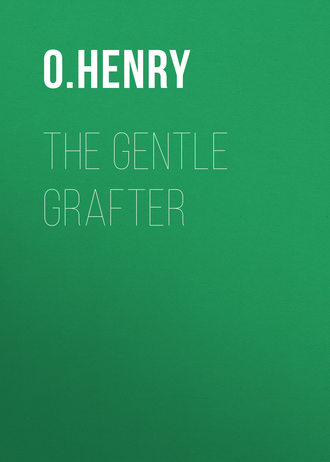 полная версия
полная версияThe Gentle Grafter
"'I've got the cash here,' says the mayor, pulling a pocket book from under his pillow.
"He counts out five fifty-dollar notes and holds 'em in his hand.
"'Bring the receipt,' he says to Biddle.
"I signed the receipt and the mayor handed me the money. I put it in my inside pocket careful.
"'Now do your duty, officer,' says the mayor, grinning much unlike a sick man.
"Mr. Biddle lays his hand on my arm.
"'You're under arrest, Dr. Waugh-hoo, alias Peters,' says he, 'for practising medicine without authority under the State law.'
"'Who are you?' I asks.
"'I'll tell you who he is,' says Mr. Mayor, sitting up in bed. 'He's a detective employed by the State Medical Society. He's been following you over five counties. He came to me yesterday and we fixed up this scheme to catch you. I guess you won't do any more doctoring around these parts, Mr. Fakir. What was it you said I had, doc?' the mayor laughs, 'compound – well, it wasn't softening of the brain, I guess, anyway.'
"'A detective,' says I.
"'Correct,' says Biddle. 'I'll have to turn you over to the sheriff.'
"'Let's see you do it,' says I, and I grabs Biddle by the throat and half throws him out the window, but he pulls a gun and sticks it under my chin, and I stand still. Then he puts handcuffs on me, and takes the money out of my pocket.
"'I witness,' says he, 'that they're the same bank bills that you and I marked, Judge Banks. I'll turn them over to the sheriff when we get to his office, and he'll send you a receipt. They'll have to be used as evidence in the case.'
"'All right, Mr. Biddle,' says the mayor. 'And now, Doc Waugh-hoo,' he goes on, 'why don't you demonstrate? Can't you pull the cork out of your magnetism with your teeth and hocus-pocus them handcuffs off?'
"'Come on, officer,' says I, dignified. 'I may as well make the best of it.' And then I turns to old Banks and rattles my chains.
"'Mr. Mayor,' says I, 'the time will come soon when you'll believe that personal magnetism is a success. And you'll be sure that it succeeded in this case, too.'
"And I guess it did.
"When we got nearly to the gate, I says: 'We might meet somebody now, Andy. I reckon you better take 'em off, and – ' Hey? Why, of course it was Andy Tucker. That was his scheme; and that's how we got the capital to go into business together."
MODERN RURAL SPORTS
Jeff Peters must be reminded. Whenever he is called upon, pointedly, for a story, he will maintain that his life has been as devoid of incident as the longest of Trollope's novels. But lured, he will divulge. Therefore I cast many and divers flies upon the current of his thoughts before I feel a nibble.
"I notice," said I, "that the Western farmers, in spite of their prosperity, are running after their old populistic idols again."
"It's the running season," said Jeff, "for farmers, shad, maple trees and the Connemaugh river. I know something about farmers. I thought I struck one once that had got out of the rut; but Andy Tucker proved to me I was mistaken. 'Once a farmer, always a sucker,' said Andy. 'He's the man that's shoved into the front row among bullets, ballots and the ballet. He's the funny-bone and gristle of the country,' said Andy, 'and I don't know who we would do without him.'
"One morning me and Andy wakes up with sixty-eight cents between us in a yellow pine hotel on the edge of the pre-digested hoe-cake belt of Southern Indiana. How we got off the train there the night before I can't tell you; for she went through the village so fast that what looked like a saloon to us through the car window turned out to be a composite view of a drug store and a water tank two blocks apart. Why we got off at the first station we could, belongs to a little oroide gold watch and Alaska diamond deal we failed to pull off the day before, over the Kentucky line.
"When I woke up I heard roosters crowing, and smelt something like the fumes of nitro-muriatic acid, and heard something heavy fall on the floor below us, and a man swearing.
"'Cheer up, Andy,' says I. 'We're in a rural community. Somebody has just tested a gold brick downstairs. We'll go out and get what's coming to us from a farmer; and then yoicks! and away.'
"Farmers was always a kind of reserve fund to me. Whenever I was in hard luck I'd go to the crossroads, hook a finger in a farmer's suspender, recite the prospectus of my swindle in a mechanical kind of a way, look over what he had, give him back his keys, whetstone and papers that was of no value except to owner, and stroll away without asking any questions. Farmers are not fair game to me as high up in our business as me and Andy was; but there was times when we found 'em useful, just as Wall Street does the Secretary of the Treasury now and then.
"When we went down stairs we saw we was in the midst of the finest farming section we ever see. About two miles away on a hill was a big white house in a grove surrounded by a wide-spread agricultural agglomeration of fields and barns and pastures and out-houses.
"'Whose house is that?' we asked the landlord.
"'That,' says he, 'is the domicile and the arboreal, terrestrial and horticultural accessories of Farmer Ezra Plunkett, one of our county's most progressive citizens.'
"After breakfast me and Andy, with eight cents capital left, casts the horoscope of the rural potentate.
"'Let me go alone,' says I. 'Two of us against one farmer would look as one-sided as Roosevelt using both hands to kill a grizzly.'
"'All right,' says Andy. 'I like to be a true sport even when I'm only collecting rebates from the rutabag raisers. What bait are you going to use for this Ezra thing?' Andy asks me.
"'Oh,' I says, 'the first thing that come to hand in the suit case. I reckon I'll take along some of the new income tax receipts, and the recipe for making clover honey out of clabber and apple peelings; and the order blanks for the McGuffey's readers, which afterwards turn out to be McCormick's reapers; and the pearl necklace found on the train; and a pocket-size goldbrick; and a – '
"'That'll be enough,' says Andy. 'Any one of the lot ought to land on Ezra. And say, Jeff, make that succotash fancier give you nice, clean, new bills. It's a disgrace to our Department of Agriculture, Civil Service and Pure Food Law the kind of stuff some of these farmers hand out to use. I've had to take rolls from 'em that looked like bundles of microbe cultures captured out of a Red Cross ambulance.'
"So, I goes to a livery stable and hires a buggy on my looks. I drove out to the Plunkett farm and hitched. There was a man sitting on the front steps of the house. He had on a white flannel suit, a diamond ring, golf cap and a pink ascot tie. 'Summer boarder,' says I to myself.
"'I'd like to see Farmer Ezra Plunkett,' says I to him.
"'You see him,' says he. 'What seems to be on your mind?'
"I never answered a word. I stood still, repeating to myself the rollicking lines of that merry jingle, 'The Man with the Hoe.' When I looked at this farmer, the little devices I had in my pocket for buncoing the pushed-back brows seemed as hopeless as trying to shake down the Beef Trust with a mittimus and a parlor rifle.
"'Well,' says he, looking at me close, 'speak up. I see the left pocket of your coat sags a good deal. Out with the goldbrick first. I'm rather more interested in the bricks than I am in the trick sixty-day notes and the lost silver mine story.'
"I had a kind of cerebral sensation of foolishness in my ideas of ratiocination; but I pulled out the little brick and unwrapped my handkerchief off it.
"'One dollar and eighty cents,' says the farmer hefting it in his hand. 'Is it a trade?'
"'The lead in it is worth more than that,' says I, dignified. I put it back in my pocket.
"'All right,' says he. 'But I sort of wanted it for the collection I'm starting. I got a $5,000 one last week for $2.10.'
"Just then a telephone bell rings in the house.
"'Come in, Bunk,' says the farmer, 'and look at my place. It's kind of lonesome here sometimes. I think that's New York calling.'
"We went inside. The room looked like a Broadway stockbroker's – light oak desks, two 'phones, Spanish leather upholstered chairs and couches, oil paintings in gilt frames a foot deep and a ticker hitting off the news in one corner.
"'Hello, hello!' says this funny farmer. 'Is that the Regent Theatre? Yes; this is Plunkett, of Woodbine Centre. Reserve four orchestra seats for Friday evening – my usual ones. Yes; Friday – good-bye.'
"'I run over to New York every two weeks to see a show,' says the farmer, hanging up the receiver. 'I catch the eighteen-hour flyer at Indianapolis, spend ten hours in the heyday of night on the Yappian Way, and get home in time to see the chickens go to roost forty-eight hours later. Oh, the pristine Hubbard squasherino of the cave-dwelling period is getting geared up some for the annual meeting of the Don't-Blow-Out-the-Gas Association, don't you think, Mr. Bunk?'
"'I seem to perceive,' says I, 'a kind of hiatus in the agrarian traditions in which heretofore, I have reposed confidence.'
"'Sure, Bunk,' says he. 'The yellow primrose on the river's brim is getting to look to us Reubs like a holiday edition de luxe of the Language of Flowers with deckle edges and frontispiece.'
"Just then the telephone calls him again.
"'Hello, hello!' says he. 'Oh, that's Perkins, at Milldale. I told you $800 was too much for that horse. Have you got him there? Good. Let me see him. Get away from the transmitter. Now make him trot in a circle. Faster. Yes, I can hear him. Keep on – faster yet. … That'll do. Now lead him up to the phone. Closer. Get his nose nearer. There. Now wait. No; I don't want that horse. What? No; not at any price. He interferes; and he's windbroken. Goodbye.'
"'Now, Bunk,' says the farmer, 'do you begin to realize that agriculture has had a hair cut? You belong in a bygone era. Why, Tom Lawson himself knows better than to try to catch an up-to-date agriculturalist napping. It's Saturday, the Fourteenth, on the farm, you bet. Now, look here, and see how we keep up with the day's doings.'
"He shows me a machine on a table with two things for your ears like the penny-in-the-slot affairs. I puts it on and listens. A female voice starts up reading headlines of murders, accidents and other political casualities.
"'What you hear,' says the farmer, 'is a synopsis of to-day's news in the New York, Chicago, St. Louis and San Francisco papers. It is wired in to our Rural News Bureau and served hot to subscribers. On this table you see the principal dailies and weeklies of the country. Also a special service of advance sheets of the monthly magazines.'
"I picks up one sheet and sees that it's headed: 'Special Advance Proofs. In July, 1909, the Century will say' – and so forth.
"The farmer rings up somebody – his manager, I reckon – and tells him to let that herd of 15 Jerseys go at $600 a head; and to sow the 900-acre field in wheat; and to have 200 extra cans ready at the station for the milk trolley car. Then he passes the Henry Clays and sets out a bottle of green chartreuse, and goes over and looks at the ticker tape.
"'Consolidated Gas up two points,' says he. 'Oh, very well.'
"'Ever monkey with copper?' I asks.
"'Stand back!' says he, raising his hand, 'or I'll call the dog. I told you not to waste your time.'
"After a while he says: 'Bunk, if you don't mind my telling you, your company begins to cloy slightly. I've got to write an article on the Chimera of Communism for a magazine, and attend a meeting of the Race Track Association this afternoon. Of course you understand by now that you can't get my proxy for your Remedy, whatever it may be.'
"Well, sir, all I could think of to do was to go out and get in the buggy. The horse turned round and took me back to the hotel. I hitched him and went in to see Andy. In his room I told him about this farmer, word for word; and I sat picking at the table cover like one bereft of sagaciousness.
"'I don't understand it,' says I, humming a sad and foolish little song to cover my humiliation.
"Andy walks up and down the room for a long time, biting the left end of his mustache as he does when in the act of thinking.
"'Jeff,' says he, finally, 'I believe your story of this expurgated rustic; but I am not convinced. It looks incredulous to me that he could have inoculated himself against all the preordained systems of bucolic bunco. Now, you never regarded me as a man of special religious proclivities, did you, Jeff?' says Andy.
"'Well,' says I, 'No. But,' says I, not to wound his feelings, 'I have also observed many church members whose said proclivities were not so outwardly developed that they would show on a white handkerchief if you rubbed 'em with it.'
"'I have always been a deep student of nature from creation down,' says Andy, 'and I believe in an ultimatum design of Providence. Farmers was made for a purpose; and that was to furnish a livelihood to men like me and you. Else why was we given brains? It is my belief that the manna that the Israelites lived on for forty years in the wilderness was only a figurative word for farmers; and they kept up the practice to this day. And now,' says Andy, 'I am going to test my theory "Once a farmer, always a come-on," in spite of the veneering and the orifices that a spurious civilization has brought to him.'
"'You'll fail, same as I did,' says I. 'This one's shook off the shackles of the sheep-fold. He's entrenched behind the advantages of electricity, education, literature and intelligence.'
"'I'll try,' said Andy. 'There are certain Laws of Nature that Free Rural Delivery can't overcome.'
"Andy fumbles around awhile in the closet and comes out dressed in a suit with brown and yellow checks as big as your hand. His vest is red with blue dots, and he wears a high silk hat. I noticed he'd soaked his sandy mustache in a kind of blue ink.
"'Great Barnums?' says I. 'You're a ringer for a circus thimblerig man.'
"'Right,' says Andy. 'Is the buggy outside? Wait here till I come back. I won't be long.'
"Two hours afterwards Andy steps into the room and lays a wad of money on the table.
"'Eight hundred and sixty dollars,' said he. 'Let me tell you. He was in. He looked me over and began to guy me. I didn't say a word, but got out the walnut shells and began to roll the little ball on the table. I whistled a tune or two, and then I started up the old formula.
"'Step up lively, gentlemen,' says I, 'and watch the little ball. It costs you nothing to look. There you see it, and there you don't. Guess where the little joker is. The quickness of the hand deceives the eye.
"'I steals a look at the farmer man. I see the sweat coming out on his forehead. He goes over and closes the front door and watches me some more. Directly he says: "I'll bet you twenty I can pick the shell the ball's under now."
"'After that,' goes on Andy, 'there is nothing new to relate. He only had $860 cash in the house. When I left he followed me to the gate. There was tears in his eyes when he shook hands.
"'"Bunk," says he, "thank you for the only real pleasure I've had in years. It brings up happy old days when I was only a farmer and not an agriculturalist. God bless you."'"
Here Jeff Peters ceased, and I inferred that his story was done.
"Then you think" – I began.
"Yes," said Jeff. "Something like that. You let the farmers go ahead and amuse themselves with politics. Farming's a lonesome life; and they've been against the shell game before."
THE CHAIR OF PHILANTHROMATHEMATICS
"I see that the cause of Education has received the princely gift of more than fifty millions of dollars," said I.
I was gleaning the stray items from the evening papers while Jeff Peters packed his briar pipe with plug cut.
"Which same," said Jeff, "calls for a new deck, and a recitation by the entire class in philanthromathematics."
"Is that an allusion?" I asked.
"It is," said Jeff. "I never told you about the time when me and Andy Tucker was philanthropists, did I? It was eight years ago in Arizona. Andy and me was out in the Gila mountains with a two-horse wagon prospecting for silver. We struck it, and sold out to parties in Tucson for $25,000. They paid our check at the bank in silver – a thousand dollars in a sack. We loaded it in our wagon and drove east a hundred miles before we recovered our presence of intellect. Twenty-five thousand dollars doesn't sound like so much when you're reading the annual report of the Pennsylvania Railroad or listening to an actor talking about his salary; but when you can raise up a wagon sheet and kick around your bootheel and hear every one of 'em ring against another it makes you feel like you was a night-and-day bank with the clock striking twelve.
"The third day out we drove into one of the most specious and tidy little towns that Nature or Rand and McNally ever turned out. It was in the foothills, and mitigated with trees and flowers and about 2,000 head of cordial and dilatory inhabitants. The town seemed to be called Floresville, and Nature had not contaminated it with many railroads, fleas or Eastern tourists.
"Me and Andy deposited our money to the credit of Peters and Tucker in the Esperanza Savings Bank, and got rooms at the Skyview Hotel. After supper we lit up, and sat out on the gallery and smoked. Then was when the philanthropy idea struck me. I suppose every grafter gets it sometime.
"When a man swindles the public out of a certain amount he begins to get scared and wants to return part of it. And if you'll watch close and notice the way his charity runs you'll see that he tries to restore it to the same people he got it from. As a hydrostatical case, take, let's say, A. A made his millions selling oil to poor students who sit up nights studying political economy and methods for regulating the trusts. So, back to the universities and colleges goes his conscience dollars.
"There's B got his from the common laboring man that works with his hands and tools. How's he to get some of the remorse fund back into their overalls?
"'Aha!' says B, 'I'll do it in the name of Education. I've skinned the laboring man,' says he to himself, 'but, according to the old proverb, "Charity covers a multitude of skins."'
"So he puts up eighty million dollars' worth of libraries; and the boys with the dinner pail that builds 'em gets the benefit.
"'Where's the books?' asks the reading public.
"'I dinna ken,' says B. 'I offered ye libraries; and there they are. I suppose if I'd given ye preferred steel trust stock instead ye'd have wanted the water in it set out in cut glass decanters. Hoot, for ye!'
"But, as I said, the owning of so much money was beginning to give me philanthropitis. It was the first time me and Andy had ever made a pile big enough to make us stop and think how we got it.
"'Andy,' says I, 'we're wealthy – not beyond the dreams of average; but in our humble way we are comparatively as rich as Greasers. I feel as if I'd like to do something for as well as to humanity.'
"'I was thinking the same thing, Jeff,' says he. 'We've been gouging the public for a long time with all kinds of little schemes from selling self-igniting celluloid collars to flooding Georgia with Hoke Smith presidential campaign buttons. I'd like, myself, to hedge a bet or two in the graft game if I could do it without actually banging the cymbalines in the Salvation Army or teaching a bible class by the Bertillon system.
"'What'll we do?' says Andy. 'Give free grub to the poor or send a couple of thousand to George Cortelyou?'
"'Neither,' says I. 'We've got too much money to be implicated in plain charity; and we haven't got enough to make restitution. So, we'll look about for something that's about half way between the two.'
"The next day in walking around Floresville we see on a hill a big red brick building that appears to be disinhabited. The citizens speak up and tell us that it was begun for a residence several years before by a mine owner. After running up the house he finds he only had $2.80 left to furnish it with, so he invests that in whiskey and jumps off the roof on a spot where he now requiescats in pieces.
"As soon as me and Andy saw that building the same idea struck both of us. We would fix it up with lights and pen wipers and professors, and put an iron dog and statues of Hercules and Father John on the lawn, and start one of the finest free educational institutions in the world right there.
"So we talks it over to the prominent citizens of Floresville, who falls in fine with the idea. They give a banquet in the engine house to us, and we make our bow for the first time as benefactors to the cause of progress and enlightenment. Andy makes an hour-and-a-half speech on the subject of irrigation in Lower Egypt, and we have a moral tune on the phonograph and pineapple sherbet.
"Andy and me didn't lose any time in philanthropping. We put every man in town that could tell a hammer from a step ladder to work on the building, dividing it up into class rooms and lecture halls. We wire to Frisco for a car load of desks, footballs, arithmetics, penholders, dictionaries, chairs for the professors, slates, skeletons, sponges, twenty-seven cravenetted gowns and caps for the senior class, and an open order for all the truck that goes with a first-class university. I took it on myself to put a campus and a curriculum on the list; but the telegraph operator must have got the words wrong, being an ignorant man, for when the goods come we found a can of peas and a curry-comb among 'em.
"While the weekly papers was having chalk-plate cuts of me and Andy we wired an employment agency in Chicago to express us f.o.b., six professors immediately – one English literature, one up-to-date dead languages, one chemistry, one political economy – democrat preferred – one logic, and one wise to painting, Italian and music, with union card. The Esperanza bank guaranteed salaries, which was to run between $800 and $800.50.
"Well, sir, we finally got in shape. Over the front door was carved the words: 'The World's University; Peters & Tucker, Patrons and Proprietors. And when September the first got a cross-mark on the calendar, the come-ons begun to roll in. First the faculty got off the tri-weekly express from Tucson. They was mostly young, spectacled, and red-headed, with sentiments divided between ambition and food. Andy and me got 'em billeted on the Floresvillians and then laid for the students.
"They came in bunches. We had advertised the University in all the state papers, and it did us good to see how quick the country responded. Two hundred and nineteen husky lads aging along from 18 up to chin whiskers answered the clarion call of free education. They ripped open that town, sponged the seams, turned it, lined it with new mohair; and you couldn't have told it from Harvard or Goldfields at the March term of court.
"They marched up and down the streets waving flags with the World's University colors – ultra-marine and blue – and they certainly made a lively place of Floresville. Andy made them a speech from the balcony of the Skyview Hotel, and the whole town was out celebrating.
"In about two weeks the professors got the students disarmed and herded into classes. I don't believe there's any pleasure equal to being a philanthropist. Me and Andy bought high silk hats and pretended to dodge the two reporters of the Floresville Gazette. The paper had a man to kodak us whenever we appeared on the street, and ran our pictures every week over the column headed 'Educational Notes.' Andy lectured twice a week at the University; and afterward I would rise and tell a humorous story. Once the Gazette printed my pictures with Abe Lincoln on one side and Marshall P. Wilder on the other.
"Andy was as interested in philanthropy as I was. We used to wake up of nights and tell each other new ideas for booming the University.
"'Andy,' says I to him one day, 'there's something we overlooked. The boys ought to have dromedaries.'
"'What's that?' Andy asks.
"'Why, something to sleep in, of course,' says I. 'All colleges have 'em.'
"'Oh, you mean pajamas,' says Andy.
"'I do not,' says I. 'I mean dromedaries.' But I never could make Andy understand; so we never ordered 'em. Of course, I meant them long bedrooms in colleges where the scholars sleep in a row.


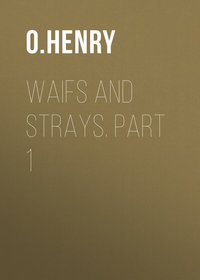
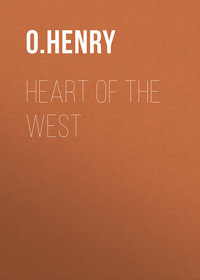
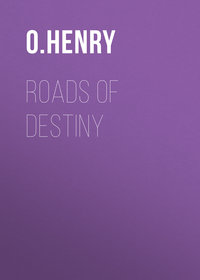
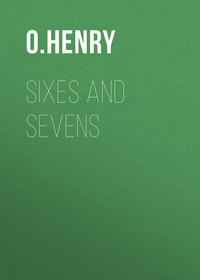
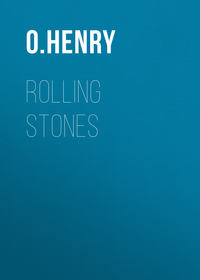

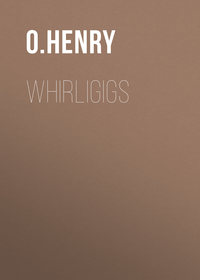
![Heart of the West [Annotated]](/covers_200/25561004.jpg)